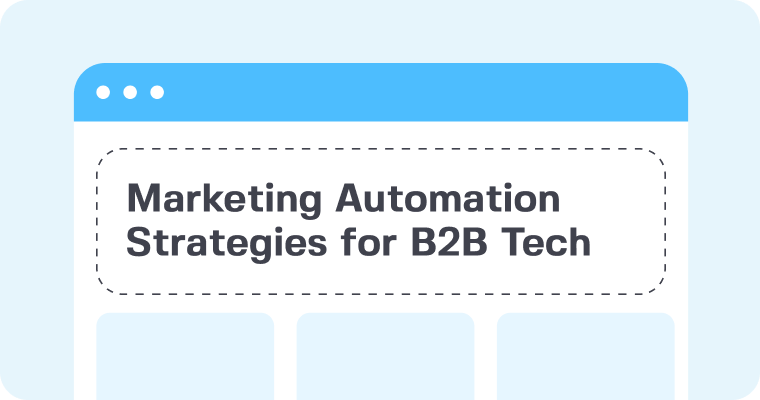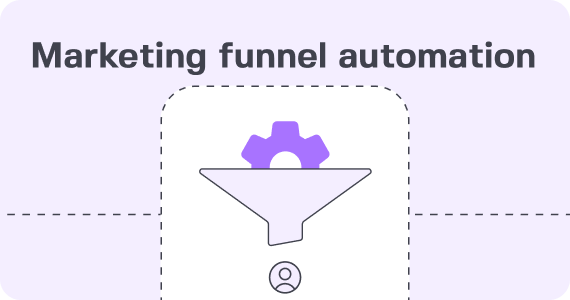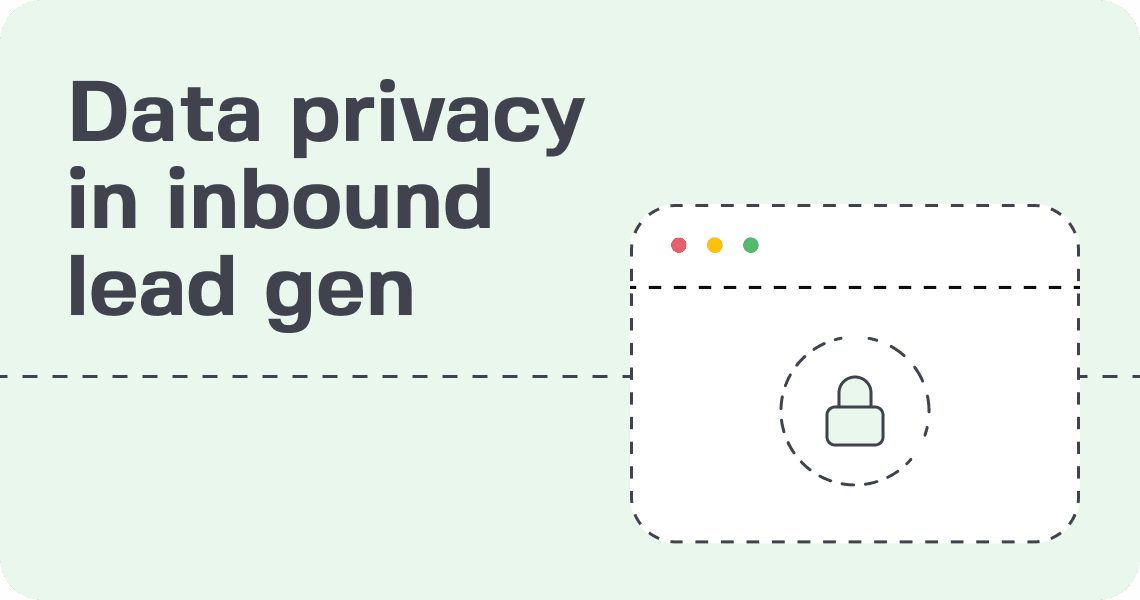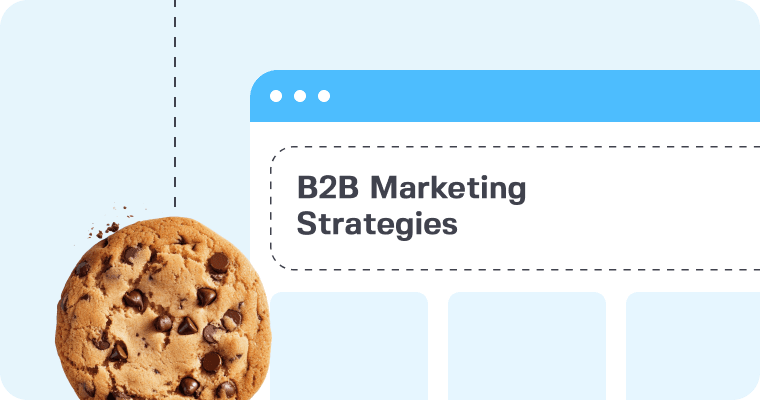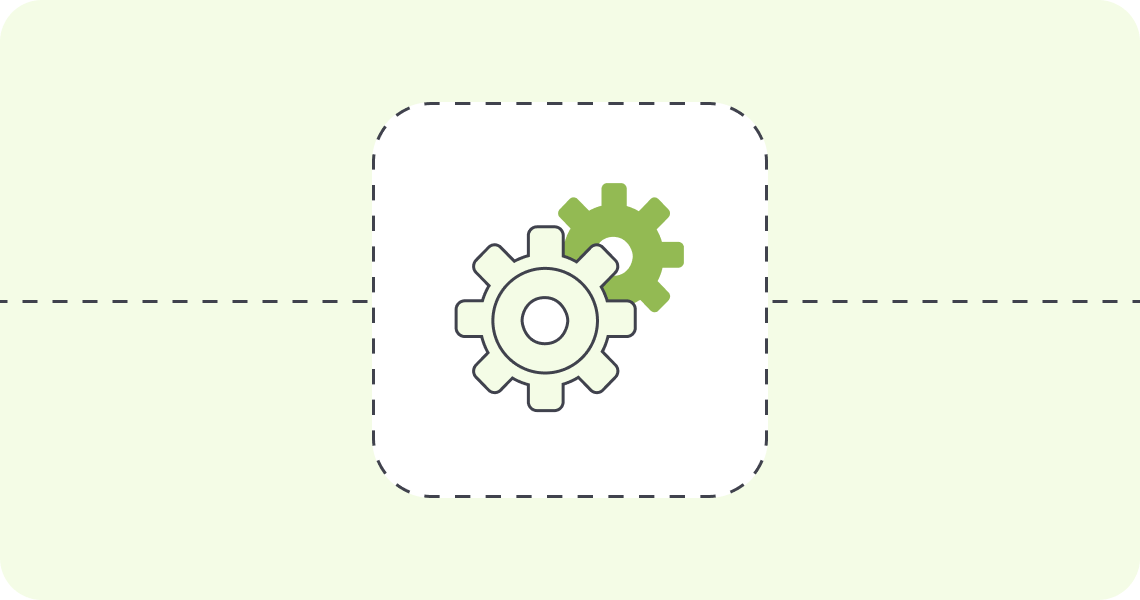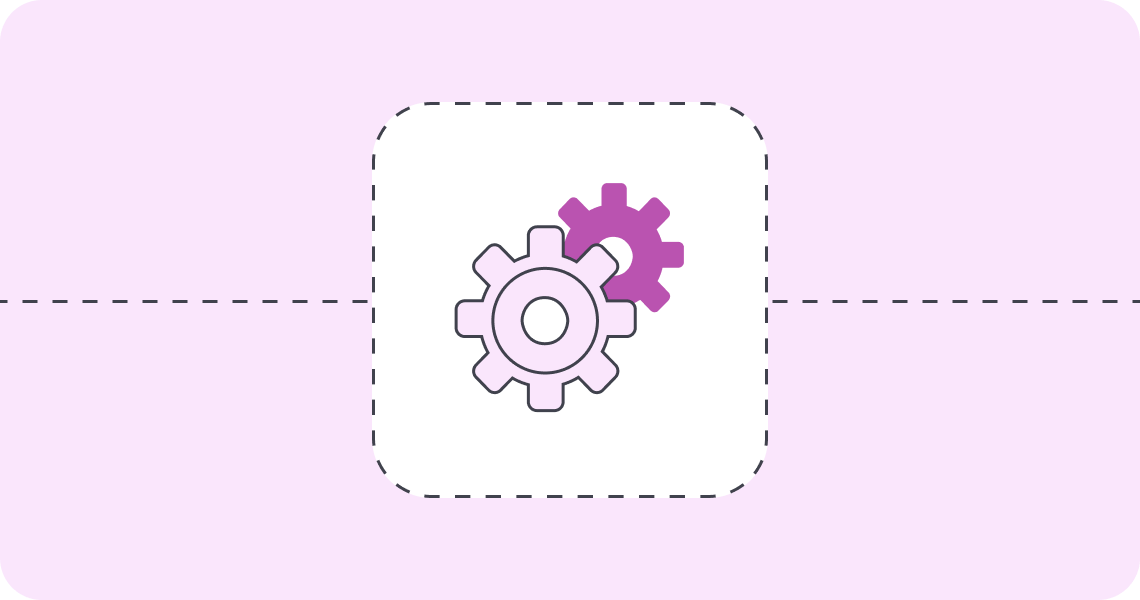In the world of digital marketing, the chatter surrounding marketing automation and its ROI-boosting potential is undeniable. But amidst the hype, what’s the reality?
According to Nucleus Research, companies see an average return of $5.44 for every $1 invested within the initial 3 years of implementation—a staggering 544%. Moreover, many recover their investment costs in under 6 months. So, how can businesses translate these promising statistics into tangible results? In this blog, we’ll dissect the fundamentals of marketing automation ROI, covering its core concepts, essentials, and strategies for effective data management.
Understanding ROI in Marketing Automation
Definition of ROI: ROI in marketing automation measures efficiency gains through metrics like time savings, increased sales, better lead conversion rates, and cost efficiencies. For business owners, it’s essential to see how automation reduces manual effort, boosts sales, and impacts the bottom line.
Components contributing to ROI:
- Lead nurturing: Automated systems keep potential customers engaged with timely communications, improving conversion rates and enhancing resource efficiency.
- Personalized marketing: Tailoring marketing messages using customer data increases engagement and sales, directly enhancing ROI.
- Customer segmentation: Strategic targeting through customer segmentation maximizes campaign effectiveness and optimizes marketing spend, boosting ROI.
Key benefits of Marketing Automation for tech companies
Increased efficiency: Automation reduces time spent on repetitive tasks, allowing your team to focus on strategic initiatives. This shift not only saves time but also reduces operational costs.
Enhanced customer experience: Automation supports consistent, personalized interactions across the customer journey, leading to greater customer satisfaction and loyalty.
Improved sales alignment: Marketing automation aligns marketing and sales by equipping sales teams with insights on customer behaviors and ensuring leads are nurtured until they are ready to convert, boosting sales effectiveness.
Measuring Marketing Automation ROI
Key Performance Indicators (KPIs): For CEOs, particularly in the tech sector, the value derived from marketing automation must be quantifiable and aligned with overarching business goals. Essential KPIs include:
- Lead Conversion Rates: Measures the percentage of leads that turn into customers, indicating the effectiveness of automation in nurturing leads.
- Customer Acquisition Cost (CAC): Tracks the total cost spent on acquiring a new customer through automated campaigns, crucial for evaluating marketing spend efficiency.
- Customer Lifetime Value (CLV): Calculates the total revenue a business can expect from a single customer account throughout their relationship with the company, helping to determine long-term profitability.
- Marketing Attribution to Revenue: Assesses the proportion of revenue generated directly from marketing efforts, showcasing the impact of automation in driving sales.
Analytics tools: Leveraging robust analytics tools is critical for harnessing these KPIs effectively:
- Google Analytics: Offers comprehensive tracking capabilities that allow CEOs to monitor user interactions with automated marketing campaigns and their conversion paths.
- HubSpot: Provides a seamless integration of marketing, sales, and CRM functionalities, enabling detailed analysis of every stage of the customer journey and the effectiveness of automation at each step.
- Salesforce: Delivers powerful customer relationship management tools that combine various data points to present a unified view of marketing campaign effectiveness and customer engagement.
These tools provide deep insights through dashboards that consolidate data across platforms, giving CEOs a clear picture of marketing automation’s performance and its contribution to the business.
Success stories: Detailed case studies and testimonials serve as powerful proof of the effectiveness of marketing automation. Key narratives could include:
- Increased lead generation efficiency: A tech company might illustrate how marketing automation helped them increase their lead generation by 50% while reducing manual effort by 30%.
- Improved Conversion Rates: Another case could demonstrate how implementing targeted marketing automation strategies led to a 40% increase in conversion rates, significantly boosting revenue.
- Cost reduction: Highlight a scenario where automation led to a noticeable reduction in marketing costs due to more precise customer targeting and streamlined campaign management.
These success stories not only validate the capabilities of marketing automation but also provide actionable insights and inspiration for other businesses looking to enhance their marketing strategies. For CEOs, these narratives underscore the scalability and efficiency gains possible with the right automation tools, making a compelling case for investing in advanced marketing technology.
Advanced strategies to enhance ROI in Marketing Automation
Best practices in implementation: For CEOs, especially in the tech industry where innovation is paramount, deploying marketing automation effectively is critical for achieving enhanced ROI. Here are key strategies:
- Clear goal setting: Define specific, measurable objectives for each marketing campaign. For example, increasing lead quality by 20% or boosting customer engagement by 30%. These goals should align with broader business objectives and be adaptable to rapid shifts in technology and market dynamics.
- Quality data collection: Ensure the data feeding into your automation tools is accurate and comprehensive. Implement regular audits and clean-ups of data sources to maintain data integrity, which is crucial for targeting precision and campaign effectiveness.
- Comprehensive training: Equip your team with the skills and knowledge needed to utilize marketing automation tools effectively. Continuous learning opportunities should be provided to stay abreast of new features and best practices.
- Iterative testing and feedback loops: Establish a routine of A/B testing for various elements of your campaigns, including email subject lines, landing page designs, and call-to-action messages. Utilize feedback to refine tactics continually, ensuring that automation efforts are optimized for performance.
Optimizing campaigns: Strategic campaign optimization is essential for maximizing the ROI of marketing automation investments. Key considerations include:
- Dynamic segmentation and personalization: Utilize machine learning algorithms to dynamically segment audiences and personalize content in real-time based on user behavior and preferences. This approach ensures that marketing messages are highly relevant and more likely to convert.
- Predictive analytics: Leverage predictive analytics to forecast future customer behaviors based on historical data. This can help in preemptively adjusting marketing strategies to address anticipated changes in customer needs or market conditions.
- Performance monitoring: Regularly track campaign performance against the set KPIs. Use insights gained from analytics to make informed decisions about where to allocate resources and when to pivot strategies to respond to underperforming aspects of the campaign.
Integration tactics: Effective integration of marketing automation with other business systems amplifies its benefits and enhances overall ROI:
- CRM integration: Sync marketing automation tools with Customer Relationship Management (CRM) systems to ensure a seamless flow of information. This integration provides a 360-degree view of the customer, enabling more tailored marketing strategies and improved sales alignment.
- ERP systems: Integrate with Enterprise Resource Planning (ERP) systems to link marketing efforts with inventory management, procurement, and financial data. This connectivity ensures that marketing strategies are not only aligned with sales but also with supply chain and financial objectives, creating a cohesive strategy across the entire business.
- Cross-platform data utilization: Foster an environment where data can freely move across platforms, enhancing the depth of insights available for strategic decision-making. This cross-platform data utilization aids in understanding the full impact of marketing automation on various aspects of the business.
By implementing these advanced strategies, CEOs can ensure that their investment in marketing automation not only yields a high ROI but also drives significant business growth and operational efficiency. This deep integration of technology and strategy is essential for maintaining competitive advantage in the rapidly evolving tech sector.
Avoiding common pitfalls in Marketing Automation
Automation limits: While automation can significantly enhance efficiency, over-dependence on it can detract from the personalized experience customers expect from tech companies. CEOs should monitor their automation strategies to ensure they complement human interaction rather than replace it. Striking the right balance is key to preventing customer alienation and maintaining a human touch in customer relations.
Data quality management: Accurate and current data are the lifelines of effective marketing automation. Inaccuracies can lead to misdirected marketing efforts and potential customer dissatisfaction. It is crucial for tech company leaders to implement rigorous data management practices, including regular audits and updates, to ensure the integrity of the data used in automated campaigns. This will help maintain the relevance and effectiveness of marketing strategies.
Staff engagement: The success of marketing automation is not just about the technology but also about the people using it. Continuous training and active involvement of staff are essential to fully leverage the capabilities of automation tools. CEOs should encourage ongoing education and provide their teams with the resources needed to understand and effectively implement automation technologies. Engaging staff not only enhances their ability to use these tools but also fosters a culture of innovation and adaptability within the organization.
Next steps
Marketing automation is pivotal for tech companies aiming to streamline operations and enhance customer engagement. While the benefits are substantial, success hinges on balancing automation with human touch, maintaining data integrity, and ensuring team proficiency.
Enhance your marketing automation strategy with expert guidance from 42DM. Discover how our solutions can drive significant growth and operational efficiency in your business. Let’s accelerate your success together.


